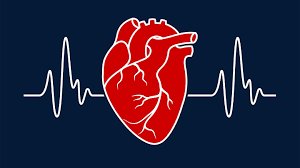Hypertension Leads To Diastolic Heart Failure

Did you know? Untreated hypertension can cause diastolic heart failure (it tends to occur when the left ventricle muscle becomes stiff or thick). This leads to morbidity and mortality. Hence, it is essential to manage your hypertension in order to keep diastolic heart failure at bay.
High blood pressure, also known as hypertension is a common problem seen in people. It can be described as a condition wherein the long-term force of the blood against one’s artery walls is high enough that it may invite major health problems such as heart disease and stroke. The risk factors can be attributed to obesity, family history, too much alcohol intake, and smoking. The symptoms of hypertension are chest pain, dizziness, breathing difficulties, and even headaches. Moreover, you will be shocked to know that uncontrolled hypertension can lead to diastolic heart failure.
Here, we explain to you how hypertension causes diastolic heart failure
Diastolic heart failure occurs when the lower left chamber of the heart (that is the left ventricle) is unable to relax and receive the blood properly during that filling phase, reducing the amount of blood being pumped to one’s body. the diastolic phase is when the heart relaxes and fills with blood. Thus, diastolic heart failure happens when one’s left ventricle tends to become stiff or hard. You will also be shocked to know that it can also lead to the build-up inside one’s left atrium, following the lungs, leading to fluid congestion and symptoms of heart failure. Fatigue, breathing difficulties, sudden weight gain, and rapid or irregular heartbeat are the symptoms of it. Did you know? Diastolic heart failure is also characterized by the symptoms and signs of heart failure, a preserved ejection fraction, and abnormal diastolic function. Furthermore, hypertension invites diastolic heart failure.
· Your high blood pressure can make your heart work harder. Thus, one’s narrowed arteries which are less elastic will make it difficult for the blood to travel smoothly through the body. Thus, your heart will end up working harder.
· Thus, if you suffer from high blood pressure then your heart works harder to pump blood efficiently throughout the body and the muscles of your heart become large and thick. Ultimately, the muscles become stiff.
You can prevent complications of high blood pressure by:
· Adhere to a well-balanced diet: Limit your intake of sugar, salt, and started fats. eat fresh fruits, low-fat dairy products, whole grains, and vegetables. Cut down on alcohol and smoking.
· Exercise daily: Doing so can help enhance circulation and reduce the stress on your heart muscle. Also, maintain an optimum weight.
· Go for regular check-ups and follow-ups: if you are in pain then consult the doctor and don’t miss your follow-ups. Make sure that you take medications on time.















































